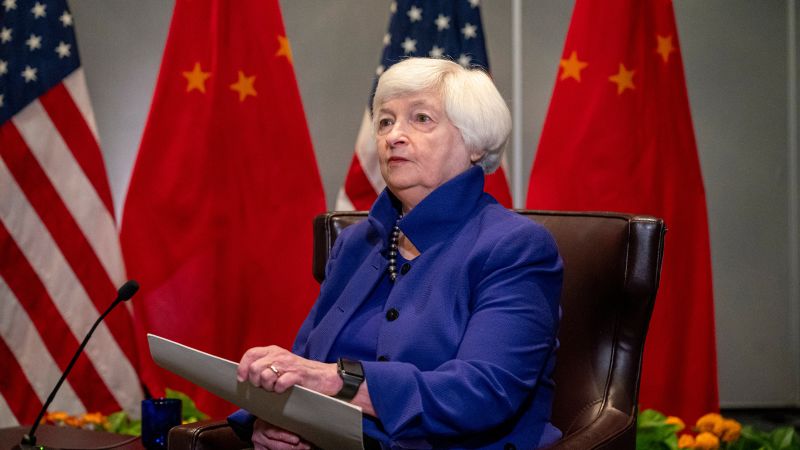Janet Yellen, the US Treasury Secretary, recently began her second visit to China with the goal of stabilizing ties between the US and China. A major issue she is expected to address is the oversupply of Chinese goods, particularly in industries such as electric vehicles and solar panels, which has become a point of contention in the lead-up to the US presidential election. Yellen has expressed concerns about China’s shift towards providing state subsidies to manufacturing industries, potentially distorting global markets and affecting local industries and employment.
Yellen has also hinted at the possibility of trade barriers if China does not address the issue of overcapacity, although no immediate measures are planned. She emphasized the importance of competing on a level playing field without having to completely decouple the two economies. Yellen’s visit comes after her comments on China’s excess capacity in the EVs, solar, and batteries markets distorting global prices and production patterns, negatively impacting American firms and workers. This issue is particularly pressing as the US has been working on reviving its own manufacturing sector.
Yellen’s trip to China follows a phone call between US President Joe Biden and Chinese leader Xi Jinping, their first conversation since a summit last November. During her visit, Yellen is expected to meet with key Chinese officials, including Premier Li Qiang, Vice Premier He Lifeng, People’s Bank of China Governor Pan Gongsheng, and Finance Minister Lan Fo’an. However, it remains unclear if Yellen will directly address the overcapacity issue or the possibility of US tariff increases on Chinese EVs.
Trade tensions between the US and China are rising, with Chinese leaders focusing on boosting manufacturing for export to offset weak domestic demand. Beijing’s investment in industries such as EVs and batteries aims to find alternative growth engines beyond the struggling property sector. The unequal balance between China’s production and consumption has the potential to disrupt the global trading system. Analysts suggest that Xi’s emphasis on new productive forces, such as tech innovation, may exacerbate the conflict over trade. The realignment of tariffs and the Section 301 investigation could lead to increased barriers to imports.
Yellen is also expected to discuss bilateral cooperation on issues such as countering illicit finance, climate change, and financial stability with her Chinese counterparts. However, analysts believe that Beijing is unlikely to change its economic policies, and Yellen’s meetings may not yield significant outcomes. There is a growing perception that Beijing aims to reduce the role of US multinationals in sensitive supply chains, asserting more control over China’s private sector and international companies operating in China. This stance is exemplified by recent national security legislation in Hong Kong, suggesting a challenging path forward in US-China relations.


